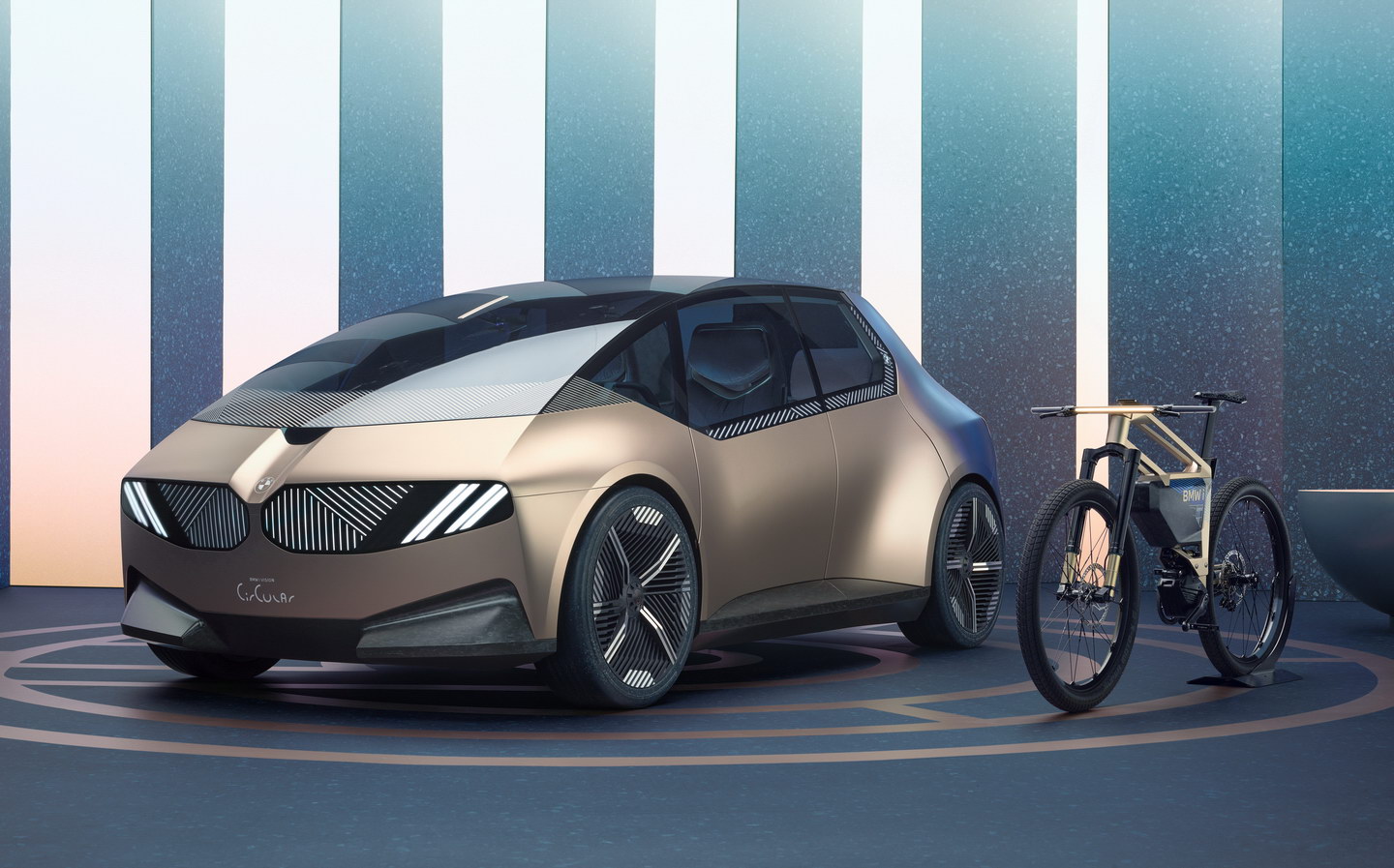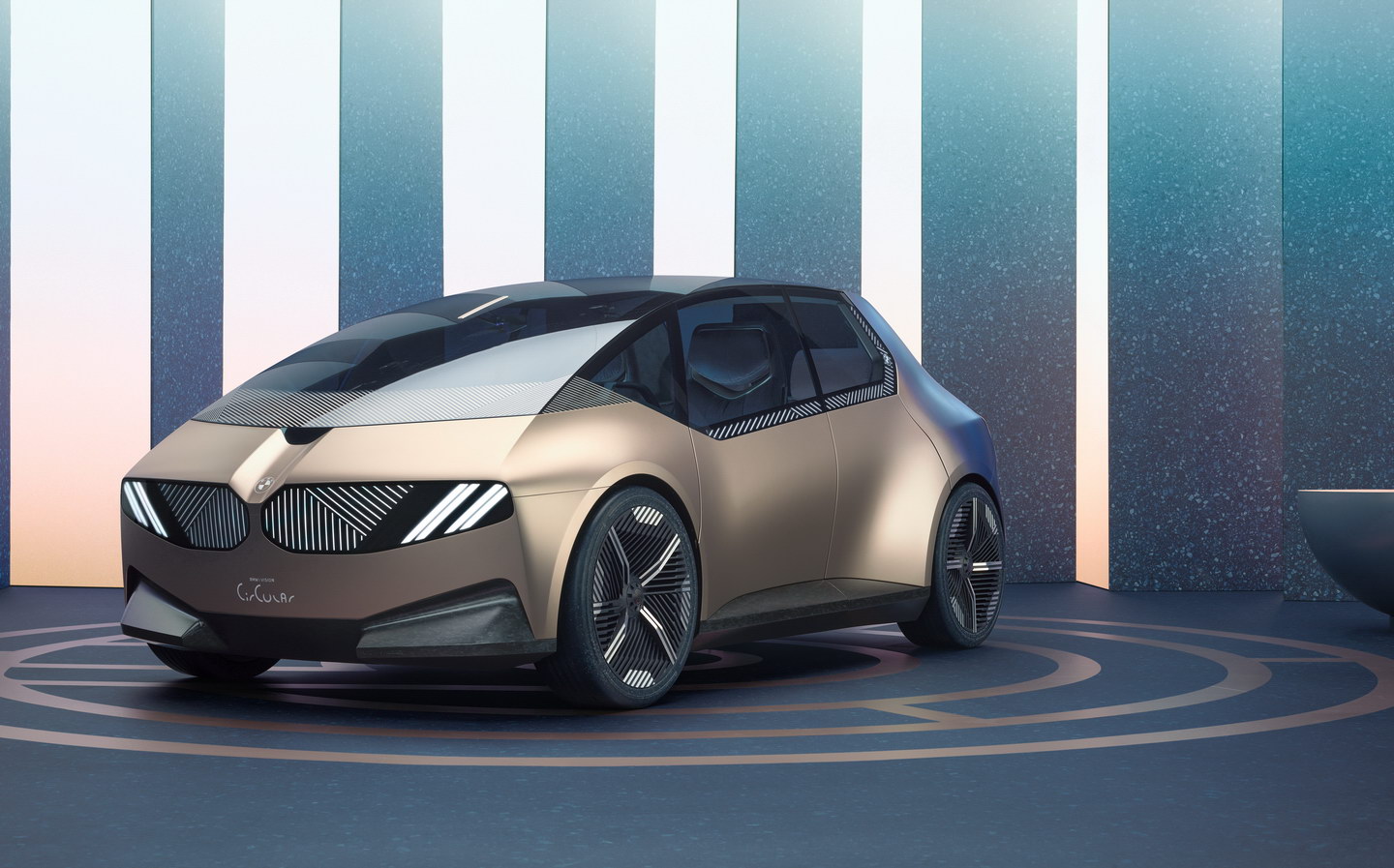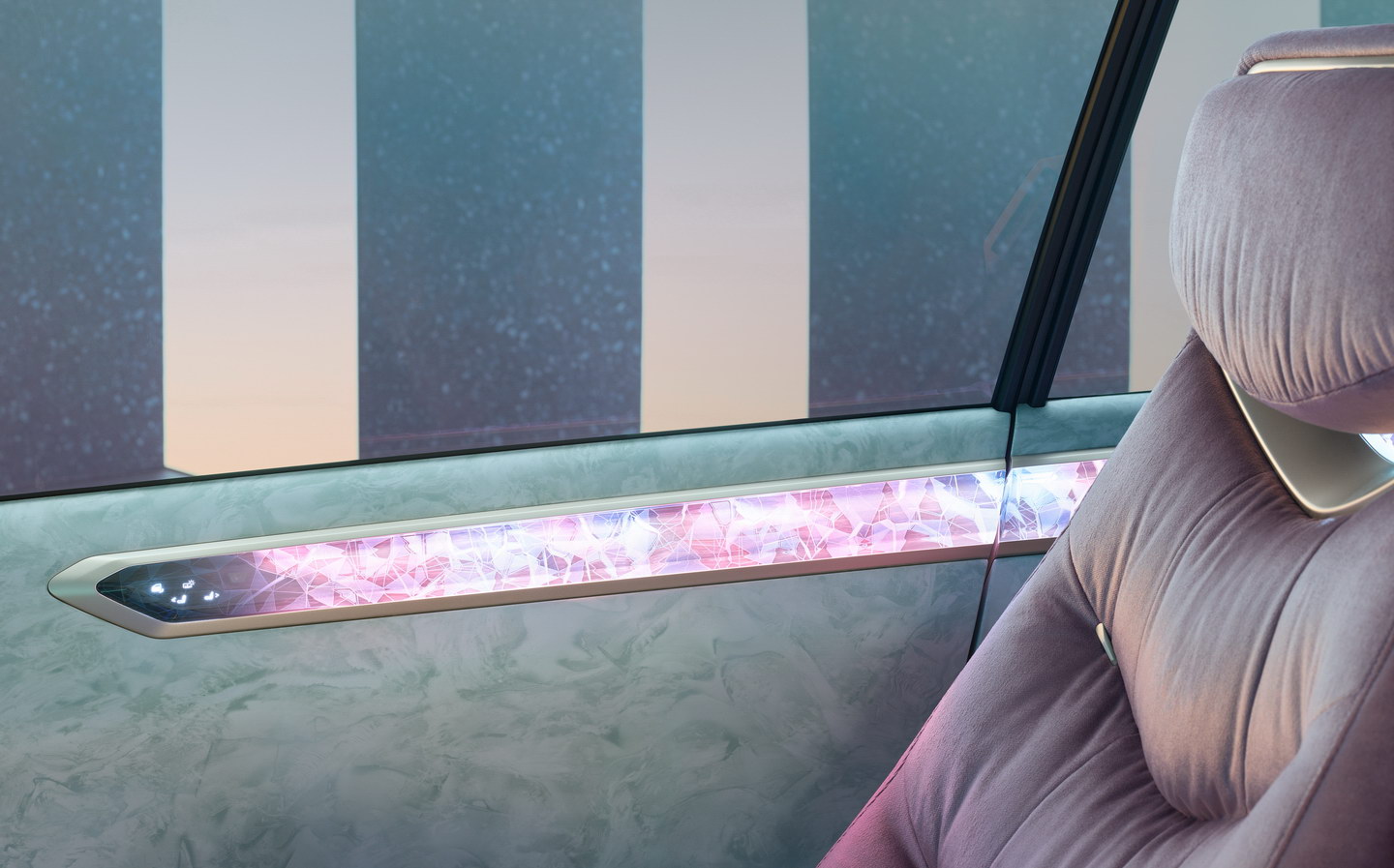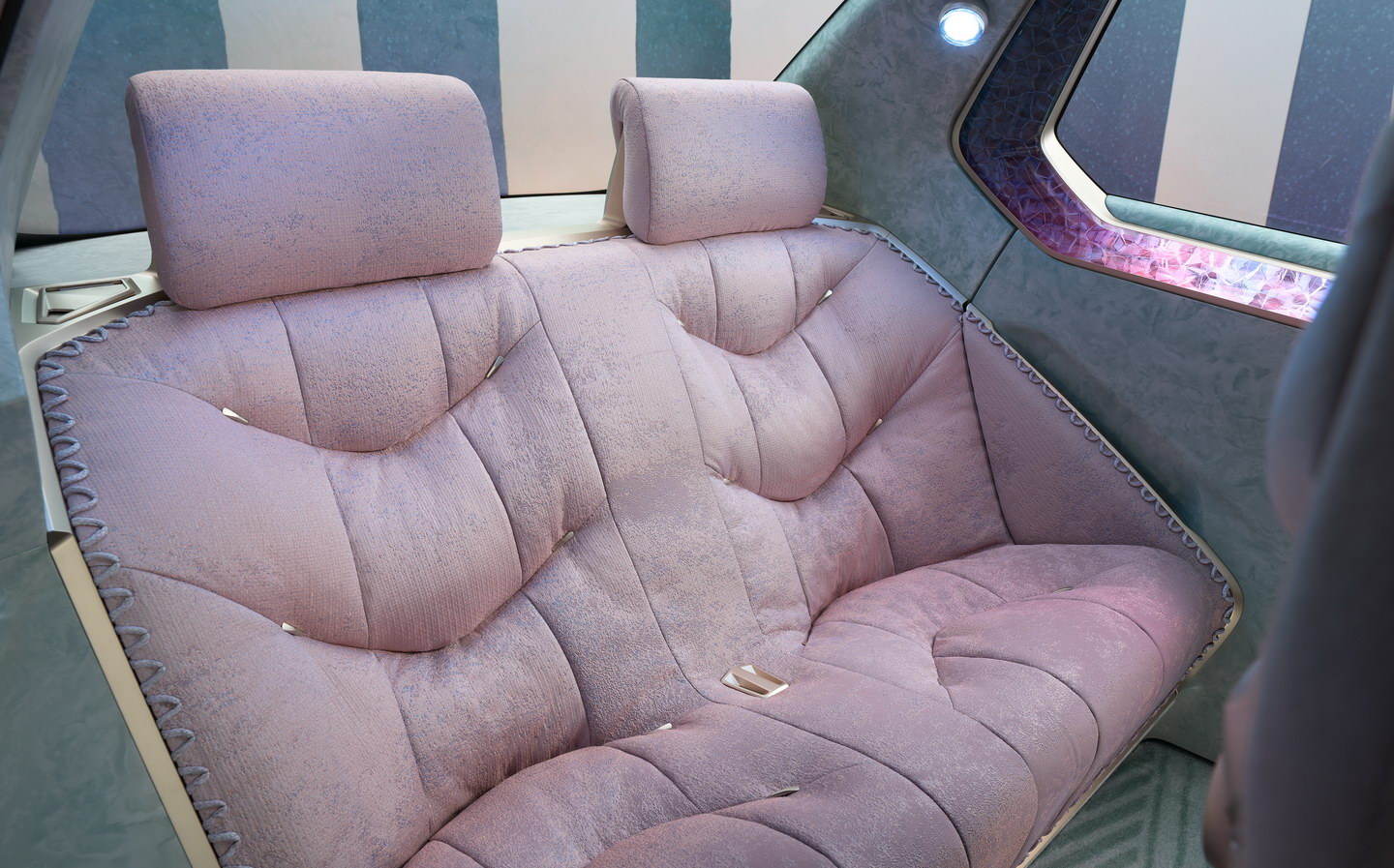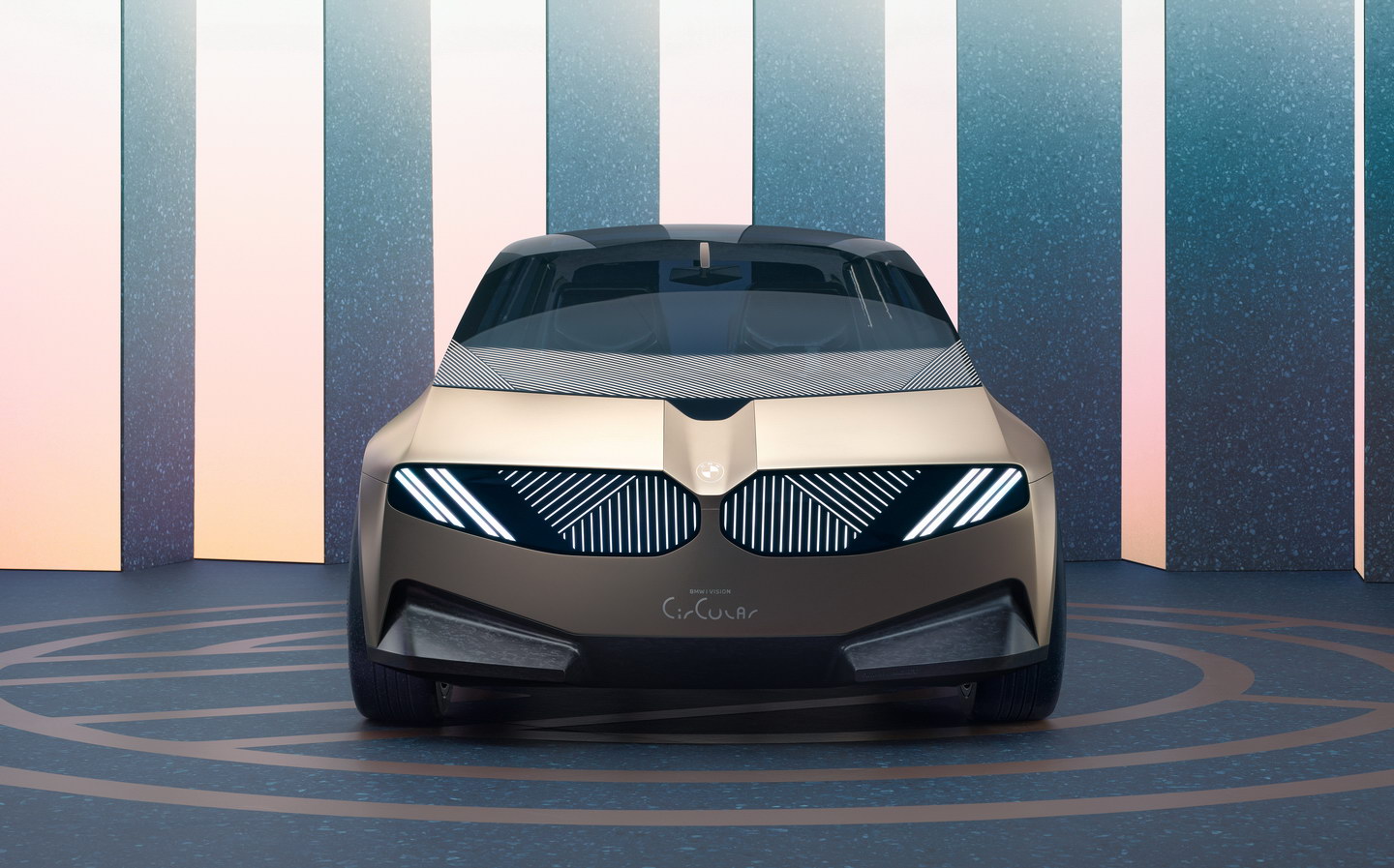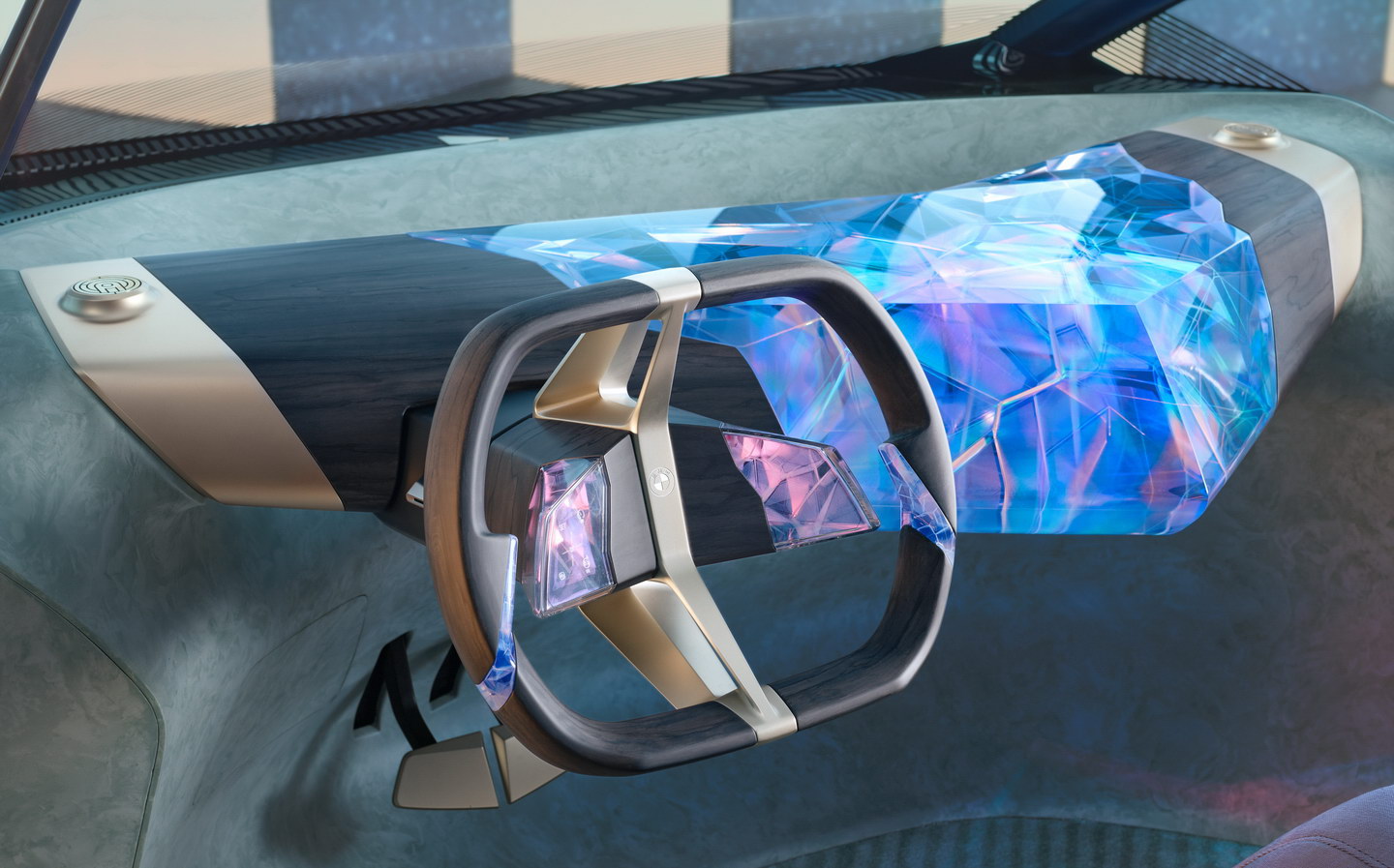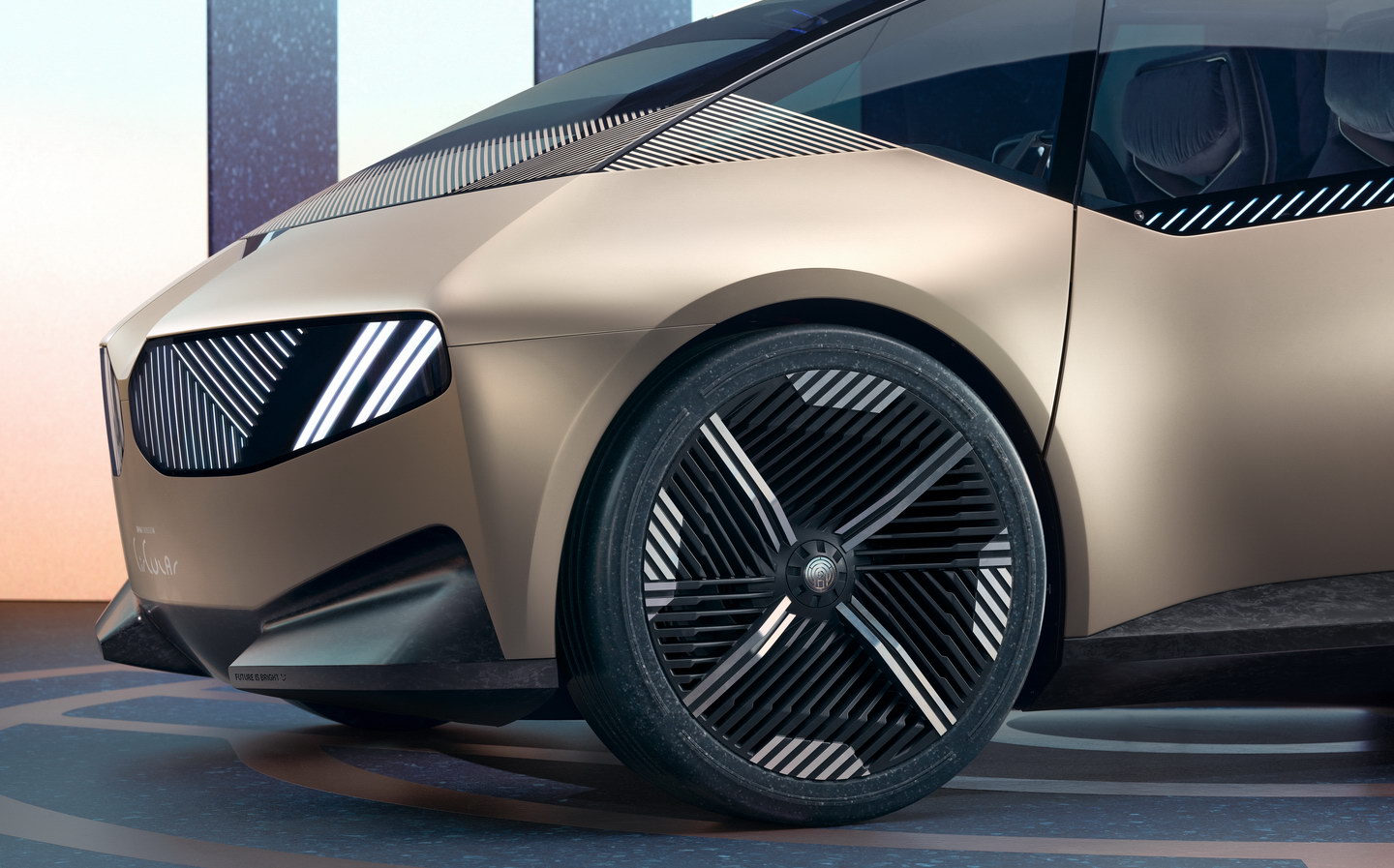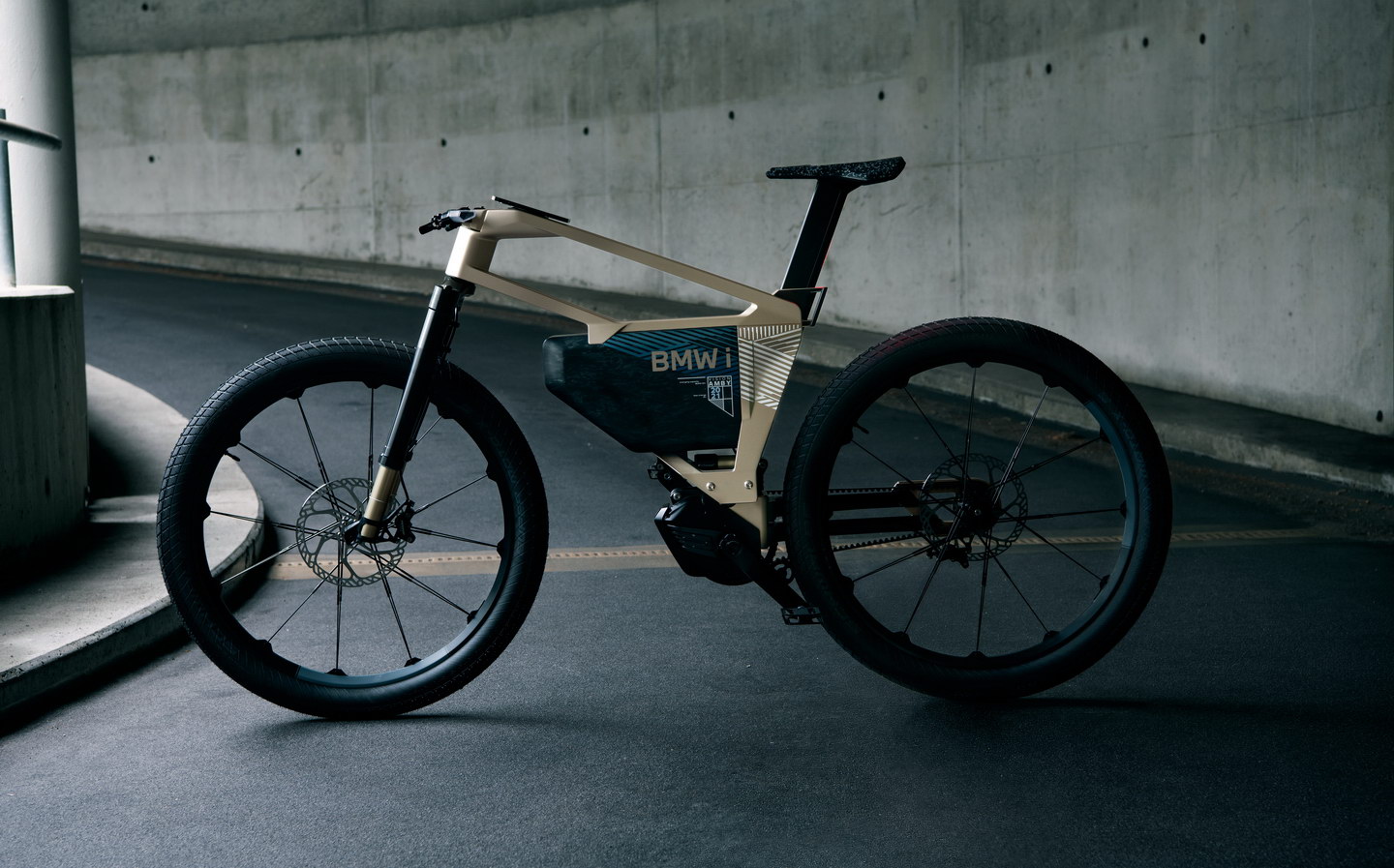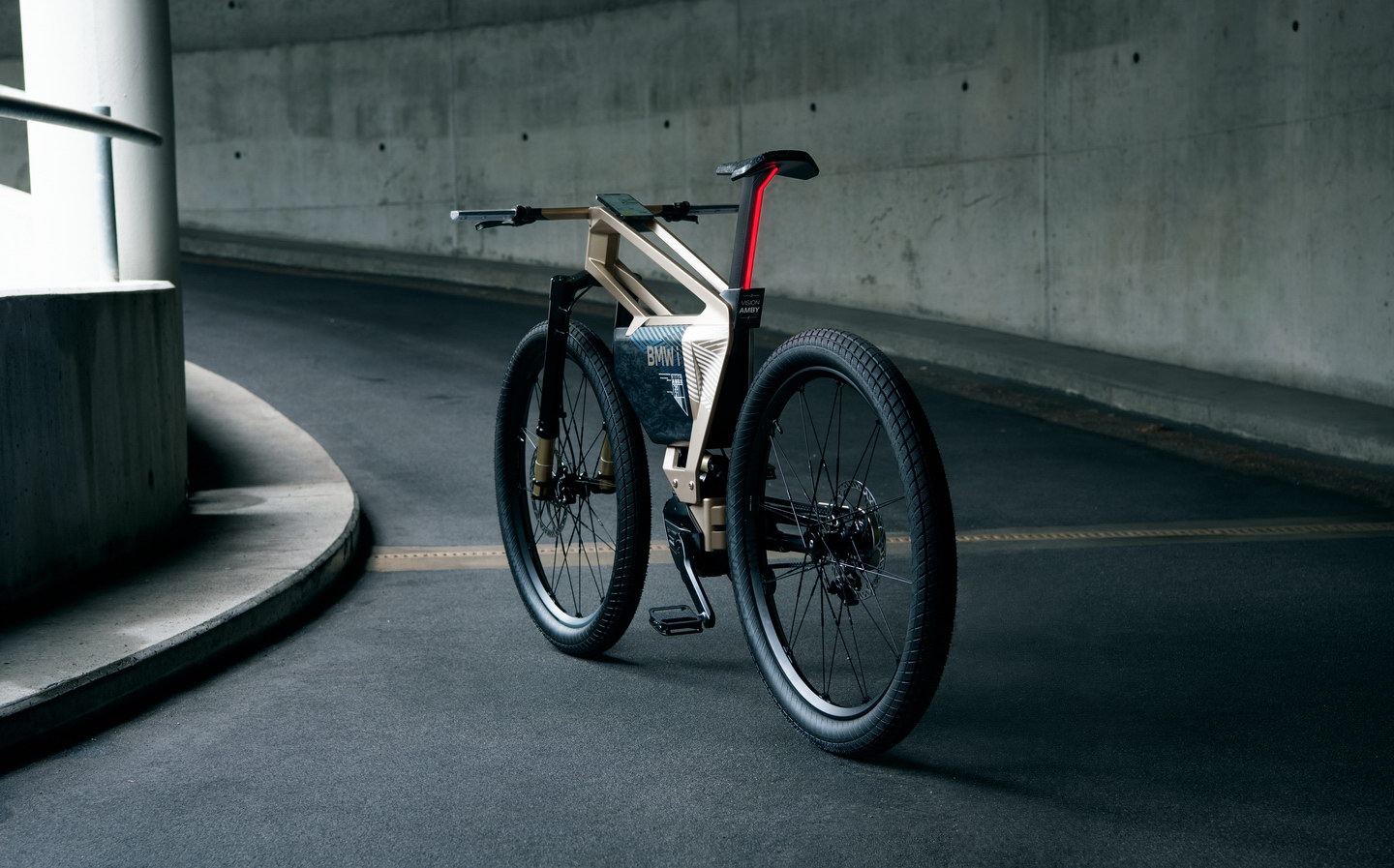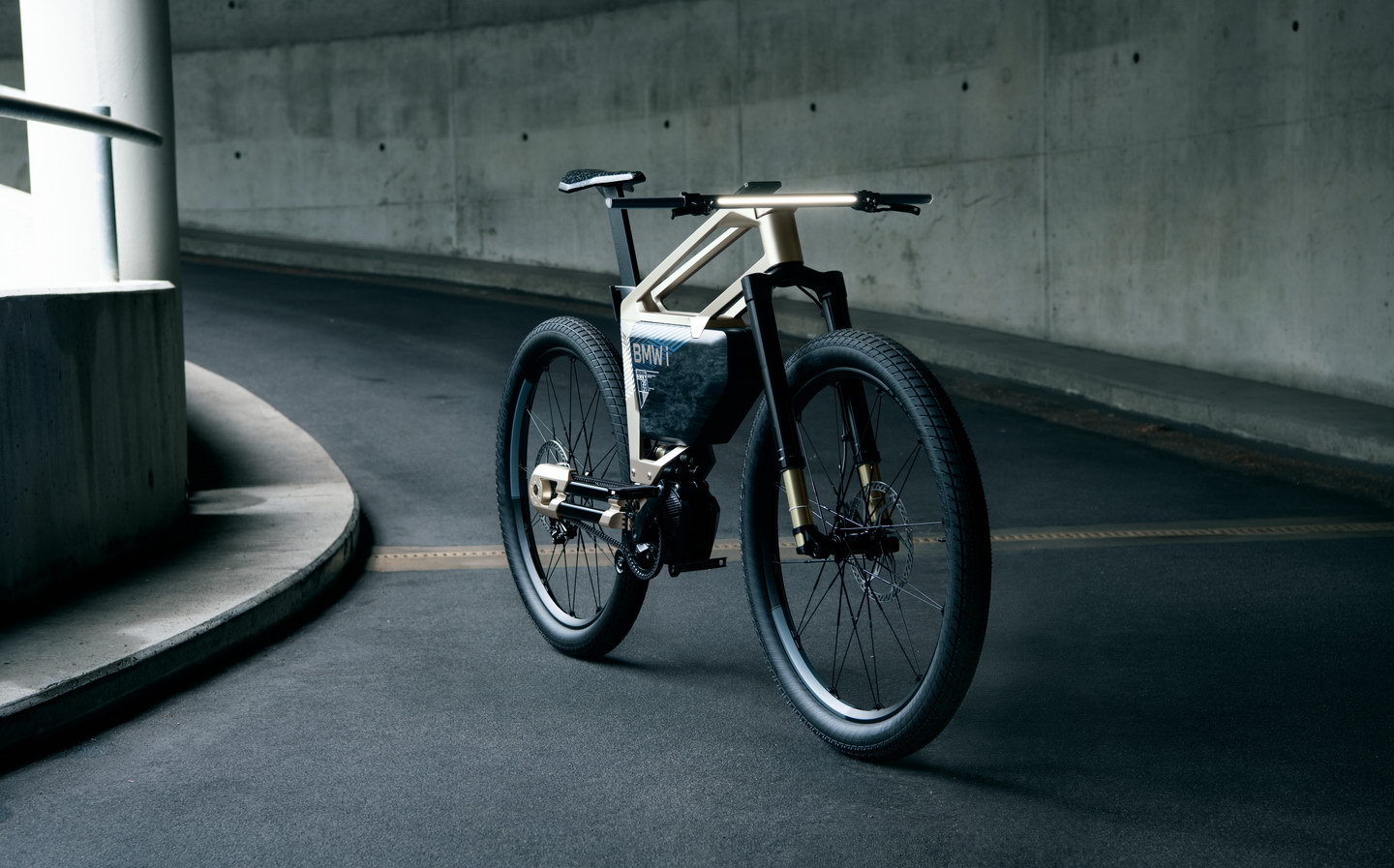BMW i Vision Circular and Amby concepts preview sustainable city life in 2040
Our funky green future, according to BMW
BMW has unveiled the i Vision Circular concept car, which represents its vision for the sustainable compact car of 2040. It was revealed at the IAA Mobility 2021 event in Munich today.
One of the key pillars of BMW’s vision for the future is increasing the quantity of recycled and secondary waste material it uses in the construction of its cars from the current figure of 30% to 50% in the coming years.
As a result, the i Vision Circular is made from 100% recycled or secondary material, as befits its name, which is derived from the idea of the circular economy in which materials are constantly reused and recycled.
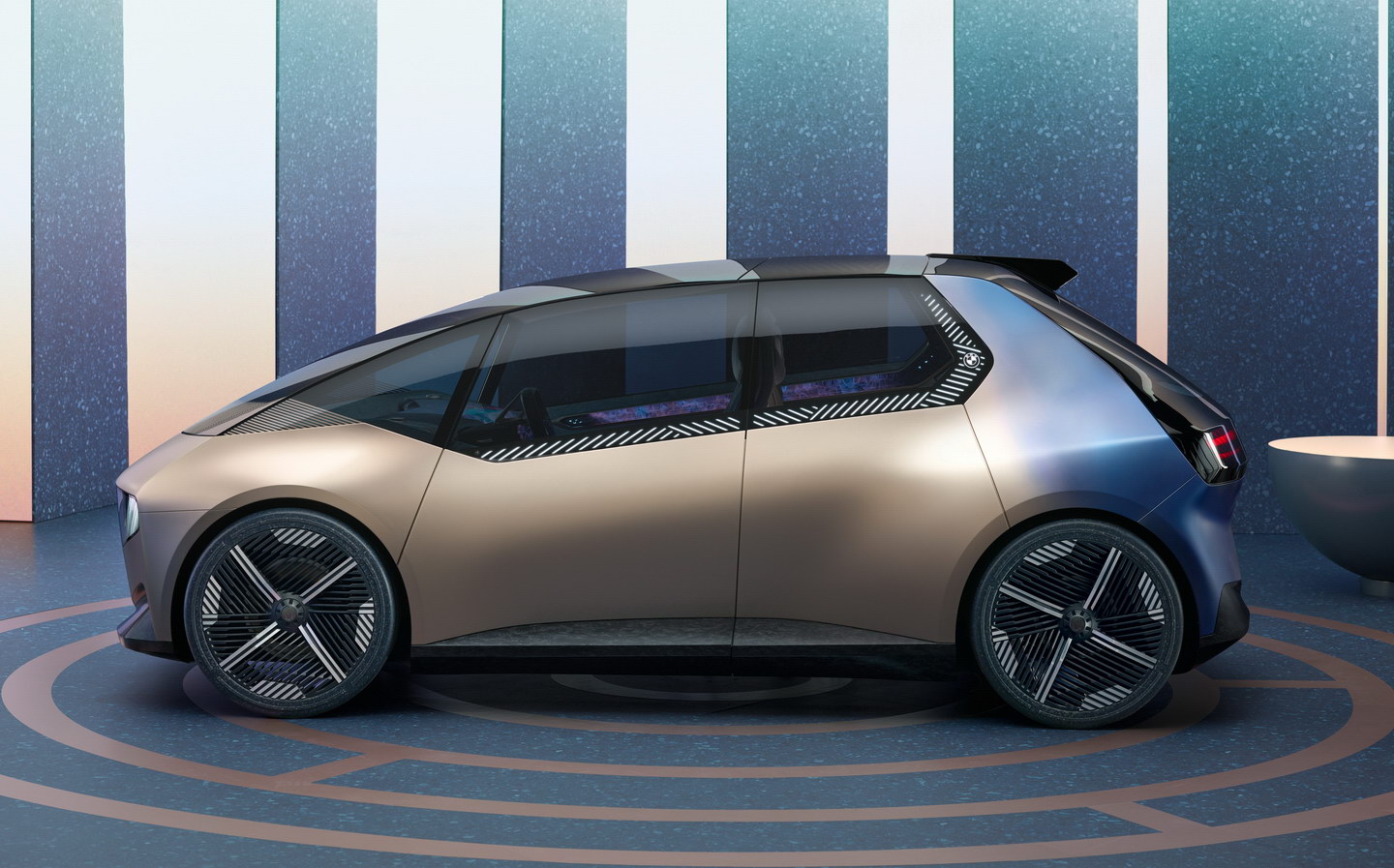
According to BMW, the four themes underpinning the concept’s design are rethink, reduce, re-use and recycle.
Rethink involved the company examining its approach to building cars and looking for ways to achieve greater materials sustainability, while reduce meant looking for extraneous components and materials in the car and cutting them out. Gone, with the i Vision are, for instance, chrome, leather and even exterior paint.
For re-use, BMW focused on looking at ways to increase the car’s longevity by constantly upgrading and improving it via over-the-air updates, and recycle meant looking at ways in which end-of-life cars could be disassembled more easily, for example by avoiding the use of glue and bonding and instead using quick-release fasteners.
Externally, the lights, grilles and chrome surrounds have been replaced with two screens shaped like BMW’s traditional double-kidney grille, incorporating the headlights. All badging has been replaced by laser etching.
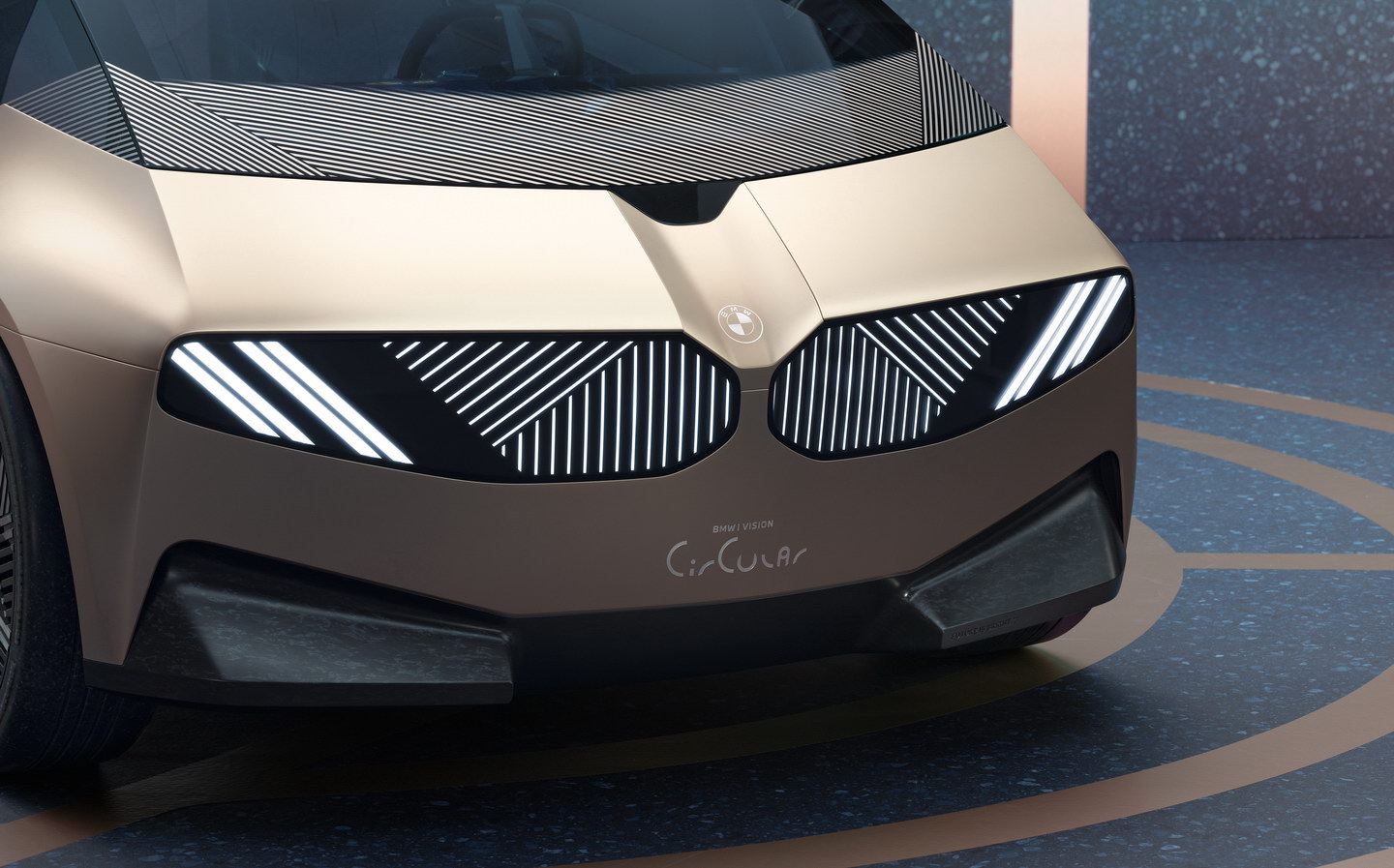
At around four metres in length, the i Vision Circular is a little smaller than BMW’s current 1 Series. The bodywork is hewn from secondary aluminium and, rather than paint, the metal is gold-anodised, giving it a golden lustre and allowing the designers to eschew carbon-intensive paint. Heat-treated steel surfaces towards the rear give a bluish effect.
The tyres are made from natural rubber and are slightly transparent, with a purplish tinge created by adding recycled rubber particles. Along the base of the windows, instead of a chrome strip a narrow screen provides illumination to those entering the vehicle in the dark.
The rear lights have been replaced with screens, which become completely dark and opaque when the car is switched off — apart from the BMW-badge graphic.
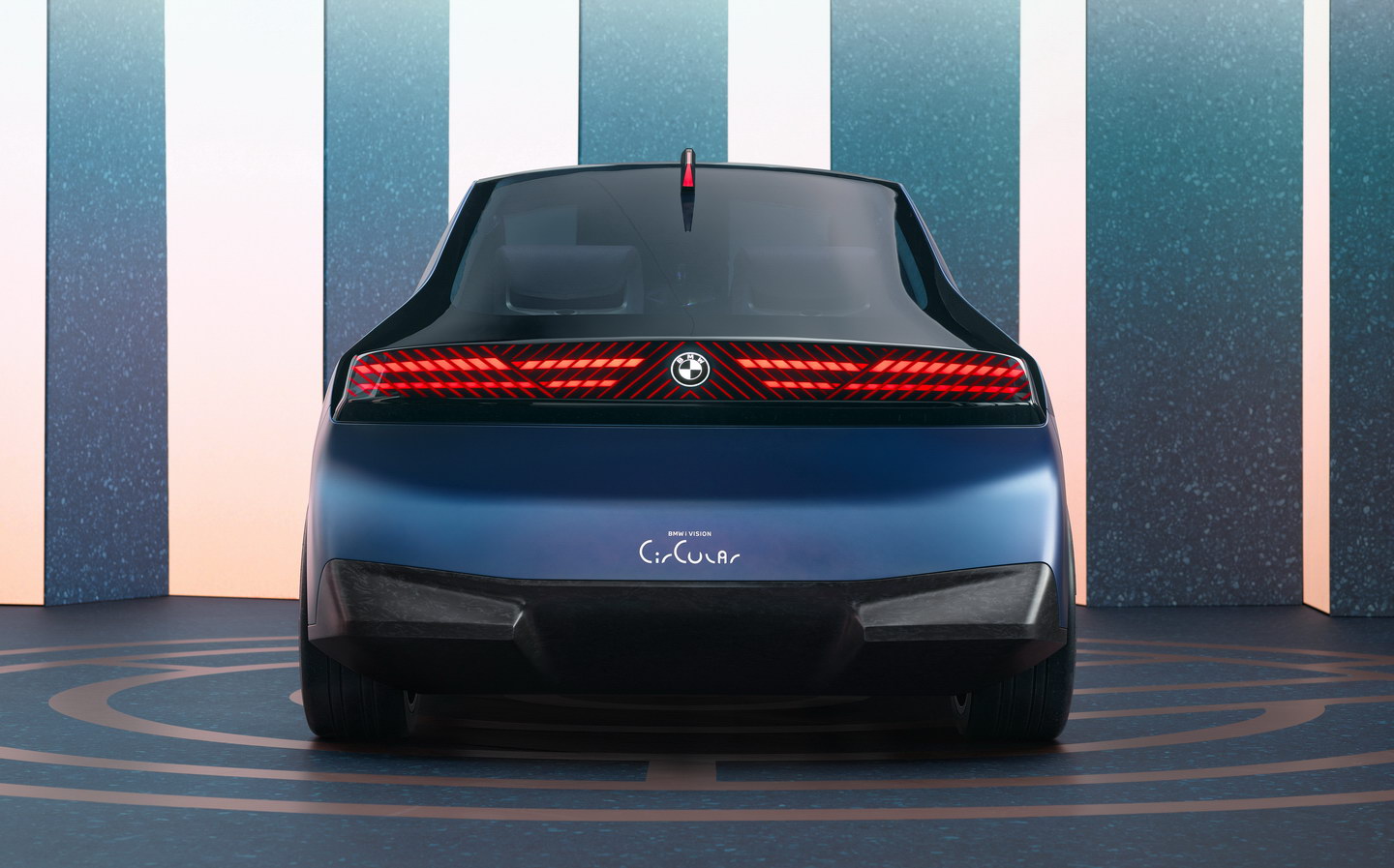
Bumpers, front and rear, are made from recycled black plastic.
Decluttered, high-tech, sustainable interior
Inside, instead of the usual display screens is a 3D-printed “crystal body” sitting in the middle of the dashboard. It reacts to hand movements and information is beamed onto the base of the windscreen via a head-up display.
Because of the large glass canopy and almost complete lack of clutter, the four-seat interior feels bright and airy, the only physicial controls appearing to be the wooden steering wheel and two pedals.
Recycling is the name of the game in the cabin, too, as the seats and carpets are made from recycled plastics, with recycled wood and aluminium providing dashboard accents.
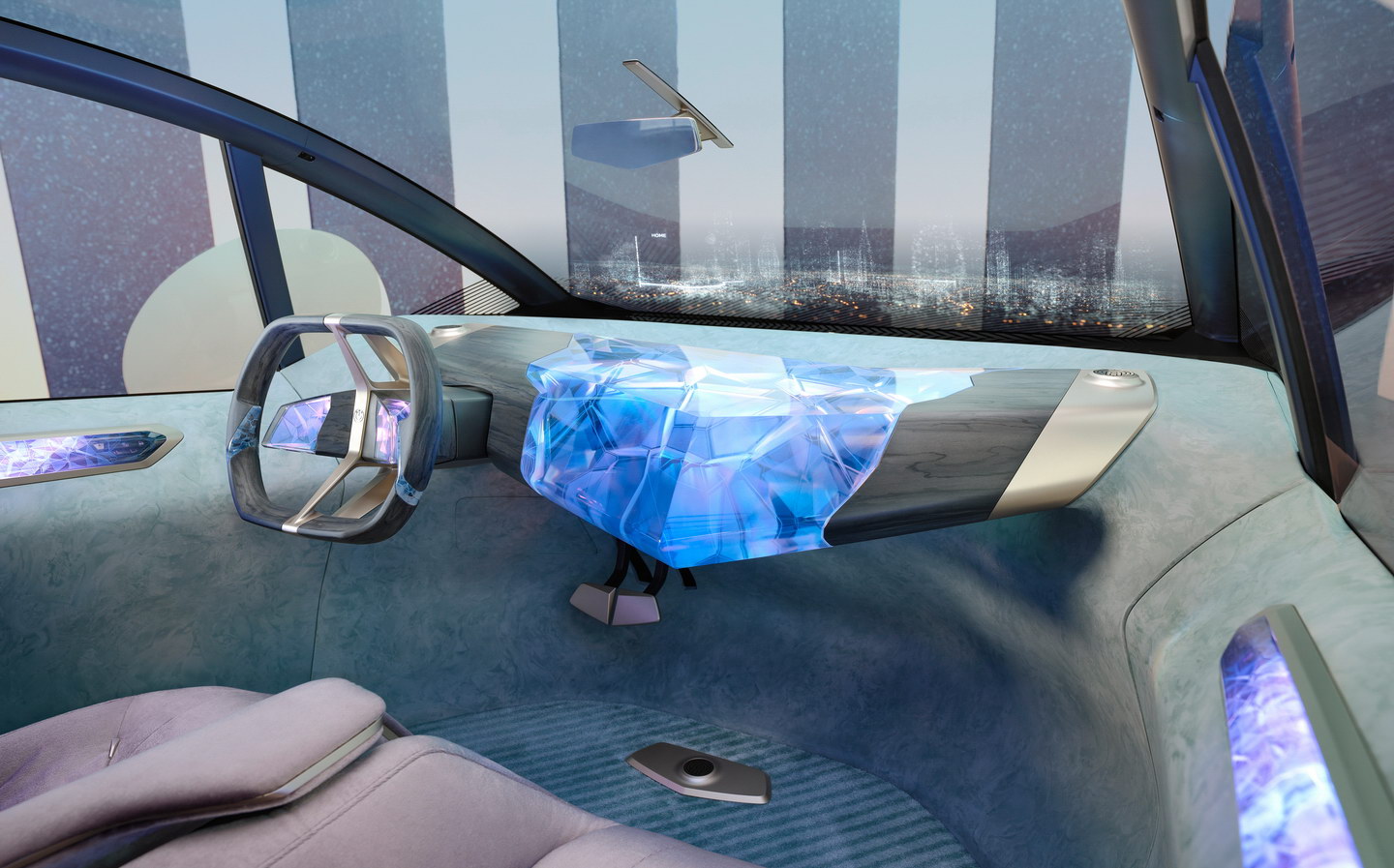
There’s no glue or bonding either, as everything is fastened together by easily disassembled connectors. BMW says off-cuts from production would all be fed back into the manufacturing process for use later on.
Under the skin, the i Vision Circular’s solid-state battery is 100% recyclable and made from materials sourced from elsewhere in the production loop.
The concept also features vehicle-to-grid charging, meaning that the battery can feed power back into the grid when needed, for example, during a power outage or at periods of peak demand.
iVision Amby electric bicycle
BMW also unveiled a new electric bike concept at the IAA event, the i Vision Amby, again outlining its vision for sustainable urban mobility.
The “high-speed pedelec” can reach speeds of up to 37mph on certain multi-lane or extra-urban roads, though with the application of smartphone-based geofencing, the bike will adapt its maximum speed to the conditions of the particular type of road (and, presumably, local regulations).
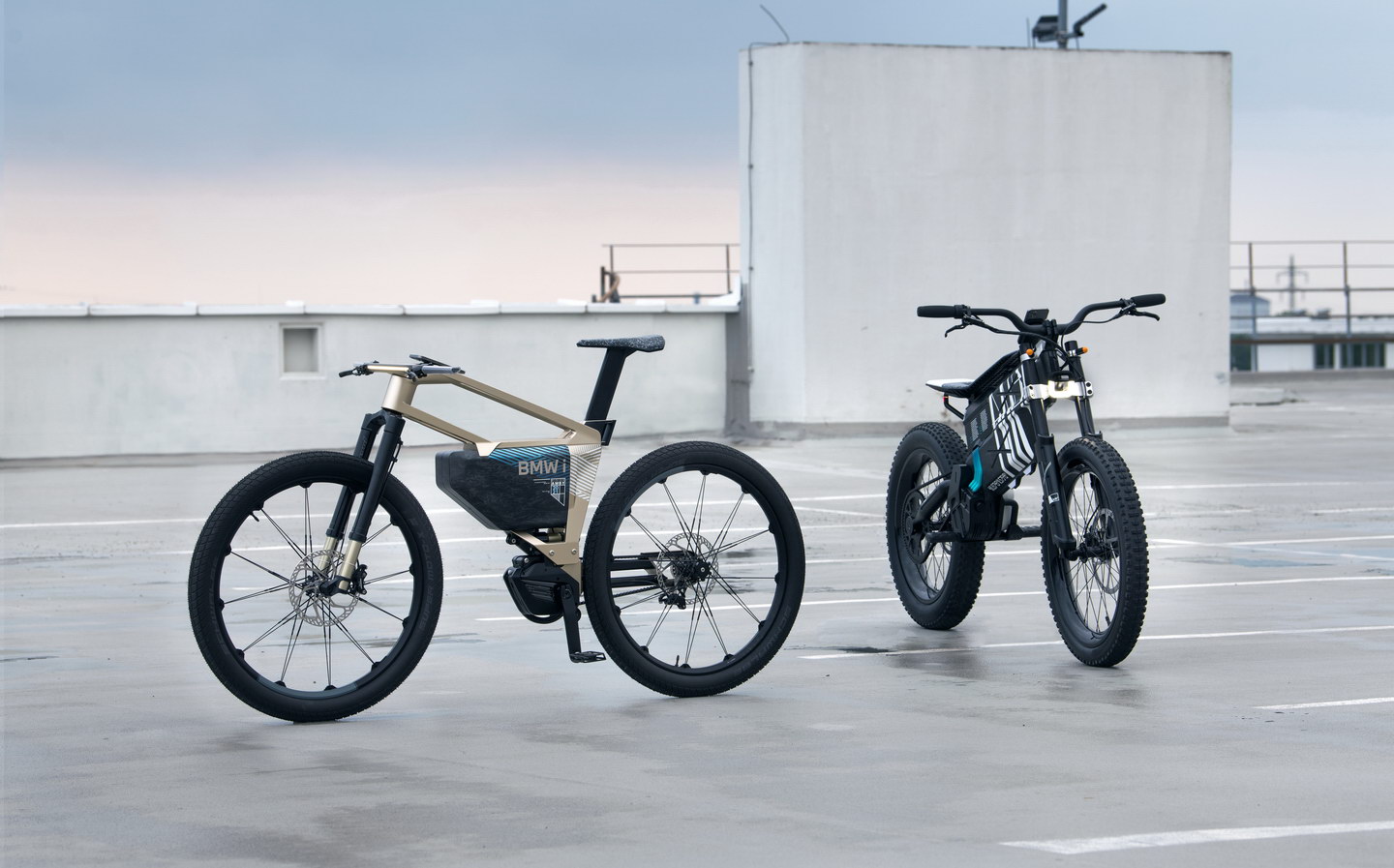
The Amby gets a range of around 186 miles from its 2kWh battery, mounted in the centre of the frame, though users must keep pedalling at all times to get the benefit of the electric traction.
The design includes LED lights that are neatly integrated into the handlebars and seat posts.
Like the i Vision Circular, the Amby is made from recycled and secondary materials in an attempt to increase whole life sustainability.
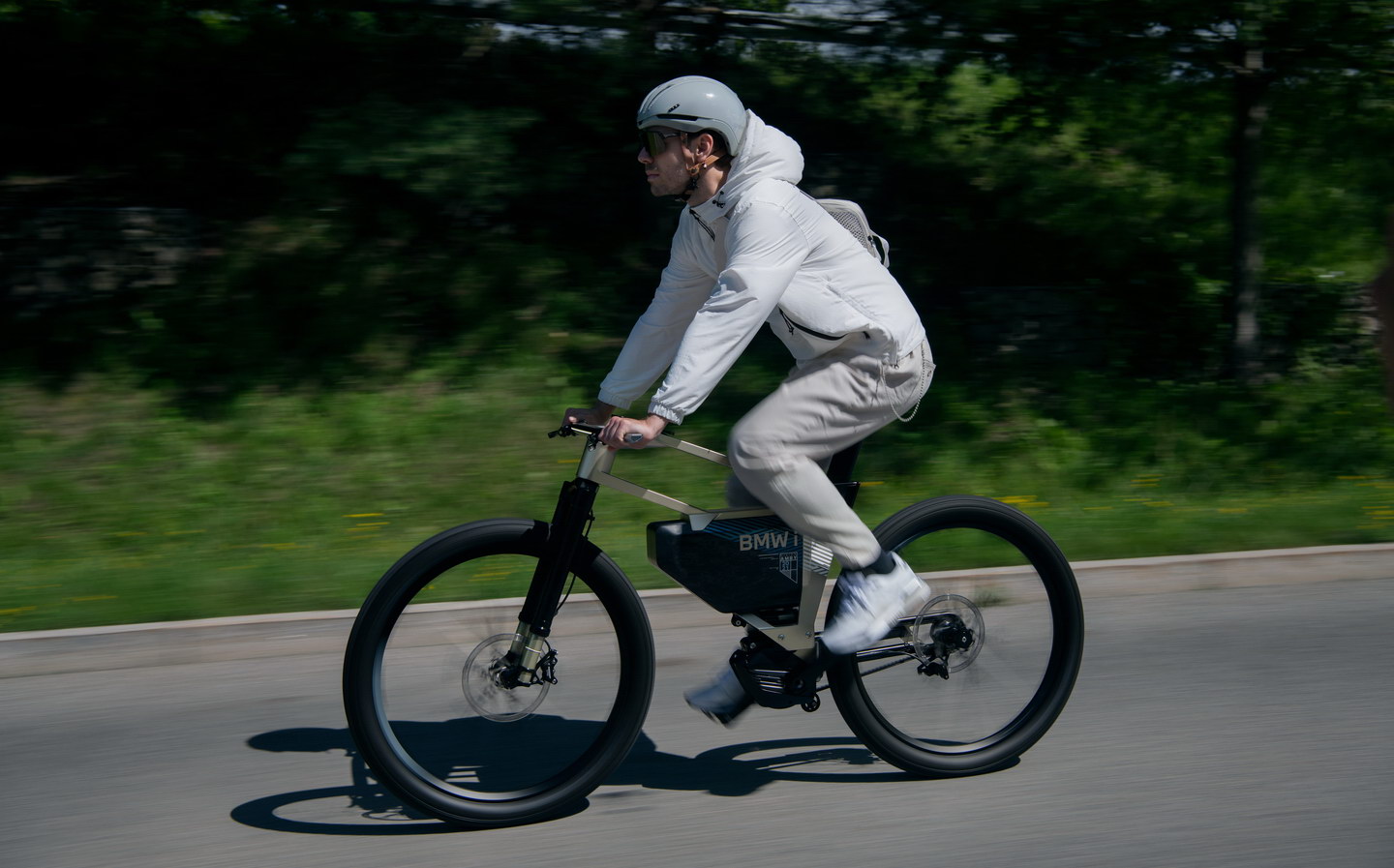
BMW hopes that by presenting this idea of a high-speed e-bike it will prompt lawmakers to draft legislation that more explicitly outlines the legality of such machines, as none currently exists.
The IAA Munich Mobility Show runs from September 7 to 12, showcasing “the mobility of the future, commitment to constant change and a platform for all those shaping the future.”
Tweet to @ST_Driving Follow @ST_Driving
- After reading how the BMW iVision Circular and Amby concepts preview city life in 2040, you might be interested to read how Mercedes connected car technology warns other drivers about potholes
- Also check out the car makers’ electric vehicle plans
- Read all about the 2022 BMW 2 Series Coupé engines, performance, images and UK pricing


